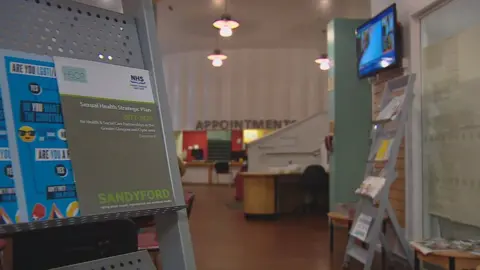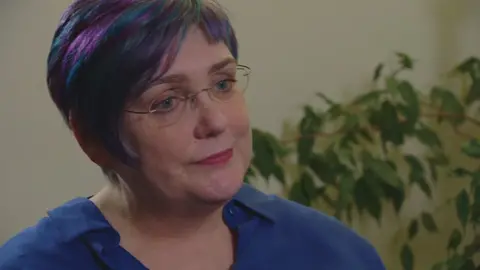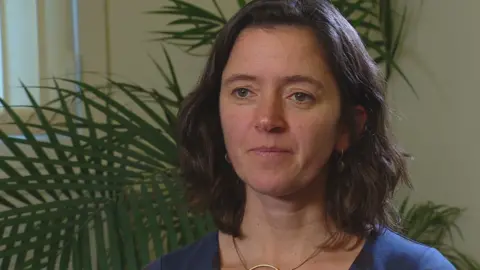New clinic for victims of sexual violence
 BBC
BBCScotland's first clinic for victims of sexual violence is to open at the end of the month.
Experts said women who had experienced sexual violence often could not face going to the doctors for smear tests and other intimate examinations.
The new clinic will also provide specialist medical care and support for victims.
It will be based at the Sandyford in Glasgow and is funded by the Scottish government.
In 2016/17 there were almost 11,000 sexual crimes cases reported in Scotland - an increase of 5.2% on the previous year and a record high.

In the year to the end of March 2017, there were 1,755 rapes reported, up by 2.3%.
The aim of the new clinic is to help those affected by giving them the support and confidence to access medical advice.
The "My Body Back" (MBB) project will also offer support to women on their body image after they have survived a sexual assault and will provide some counselling support.
Emotional support
The woman behind the project is Pavan Amara, who was raped as a teenager.
Years later she realised she could not face going to a doctor's appointment.

So she set up the My Body Back Project and established a clinic in London to help women struggling with similar experiences.
Ms Amara said: "I started My Body Back after I was raped myself, and found there were no services for how awful being raped left me feeling about my physicality.
"There was a lot of emotional support but zero support that recognised how being raped had hugely affected my body image and how terribly I felt about it afterwards.
"This left me with lots of problems, but no support services to deal with it."
Ms Amara said it was the first specialised service focusing on how women who have experienced violence feel about their bodies.
Before she started the project she interviewed 30 women about how rape had left them feeling.
"All 30 said they had problems with enjoying sex again, problems with body image, and big problems accessing healthcare as they didn't want to be touched by a stranger such as a health professional," she said.
As well as establishing the clinical service, the project will develop resources, training materials and offer training to staff working in sexual health services, with the aim of improving the understanding of doctors and experiences of survivors.

Dr Pauline McGough, of the West of Scotland Managed Clinical Network for Sexual Health, said that currently only a quarter of women attended cervical smear appointments when called and that sexual violence was one reason women did not come forward.
She said the three-year project would aim to assess demand and need.
Dr McGough said: "Women will be able to access a service which is tailored to their needs and specific concerns with comprehensive support afterwards from a range of providers."
The clinic will be available on the second Saturday of every month but patients need to book an appointment slot beforehand.
The service will be staffed by NHS doctors, nurses, counsellors, administrators and volunteers from Rape Crisis who have been trained by the London MBB team and who will share good practice.

Sandie Barton the director of operations at Rape Crisis Scotland, said their volunteers would help patients before, during and after the appointments and could accompany women to the centre.
She said: "We know how difficult it can be for women, the prospect of lying down with someone you don't know and being partially dressed and having something that reminds you of the rape or sexual violence requires understanding of how difficult that is and we want to work to make it better.
"We know that women who have experienced sexual violence are reticent about coming forward for smears and not just smears but other intimate examinations, any health appointment where there is physical contact so we know there are barriers to these appointments.
"But also because we are able to work with survivors, they are more likely to access other health appointments as well so there are much better outcomes for survivors."
Additional information on the My Body Back project can be found at www.mybodybackproject.com or on Twitter @mybodybackproj.
